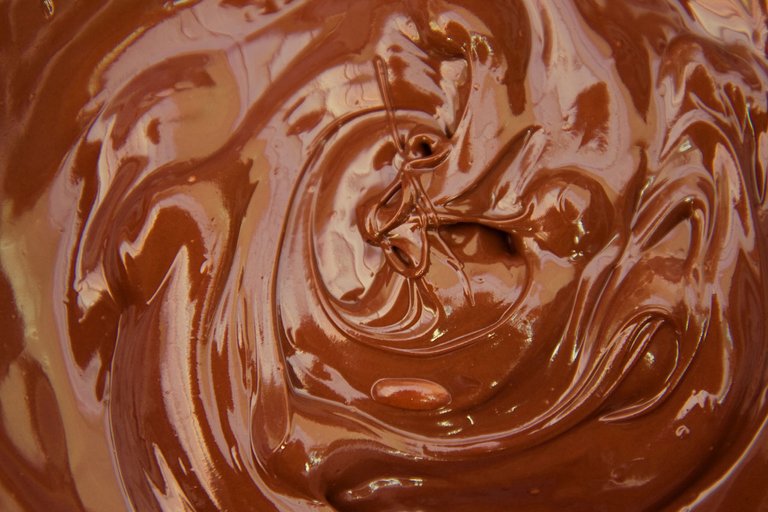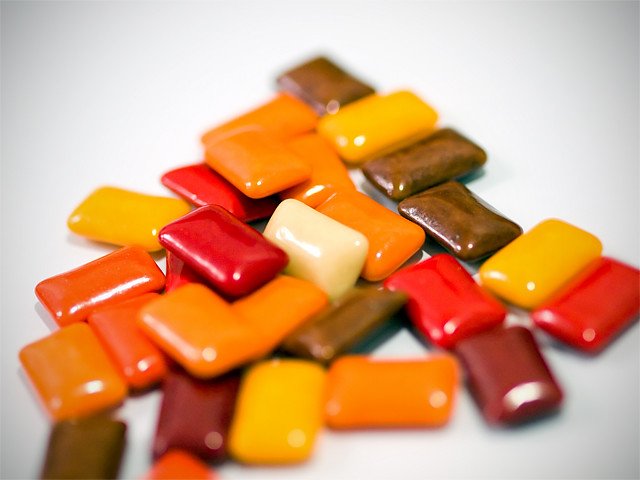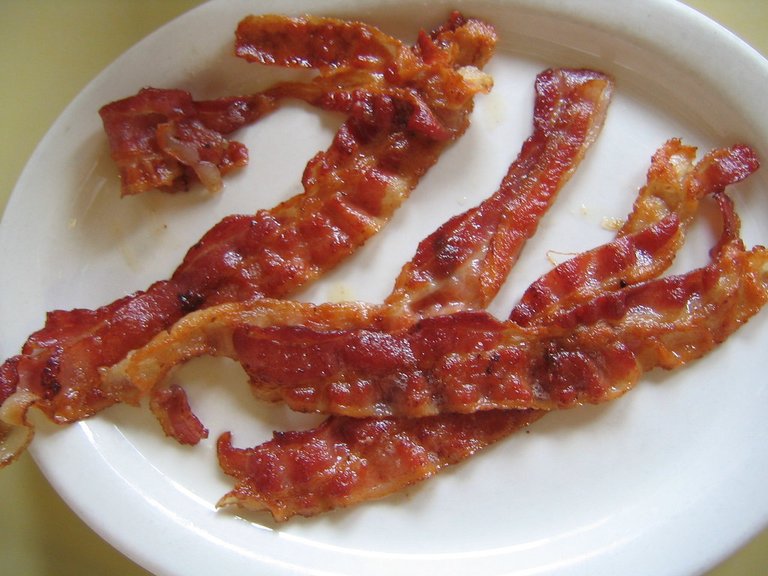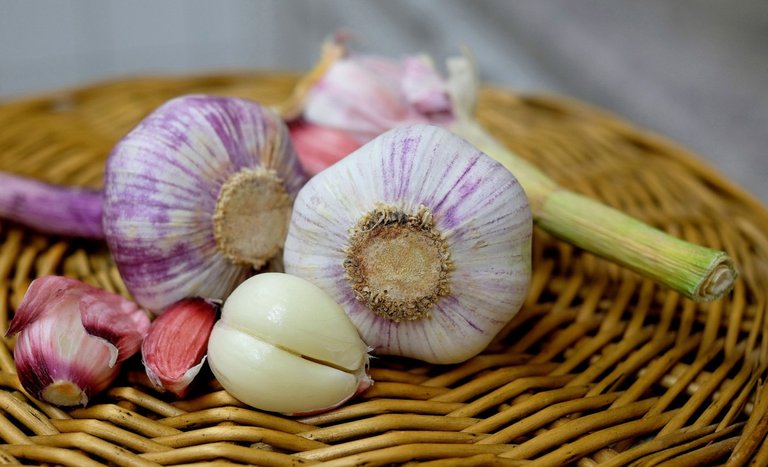A good number of people keep dogs as pets for several reasons. Whatever those reasons are, we know the saying "Dogs are man's best friend" is true in every respect. For starts, these little guys would stick to you through thick or thin, day in day out; their loyalty is unmatched in the animal world. While dogs are considered as man's best friend, that certainly does not mean you have to share every bit of your food item with your buddy, or allow them eat like a best friend would.
Sure, it's quite difficult to ignore the cute faces they make while asking for food, but any pet owner that wants to see their dog around for long would have to learn to look away, and become a bit reserved on what they feed them, because it turns out there’s a ton of foods that are not meant for them, no matter how nutritious or delicious they seem.
Like humans, dogs love to eat, and it isn't just dog food. Most of them eat just about anything edible that you give to them. However, it turns out there's quite a good amount of food that are perfectly healthy for humans, but you probably didn't know that these same food are dangerous to the health of your dog. And I bet as a dog owners, you likely might have received a long list of the do's and dont's of dog-keeping from the vet. -you know, the "do this for Spike", "feed Fido this", "don't feed Bruno that"- set of rules. And every faithful and caring pet owner commit these rules to heart without really understanding why we shouldn't give our dogs these substances. especially if they aren't science savvy. All they know is this; It's bad for the Dog!
Well, this post intends to shed some light into some substances that are harmful to our dogs, and for the love of science, I'll be explaining these reasons from a biological and nutritional point of view, as well as the "how" and the "why" they could cause harm to man's best friend.

Salt (Sodium Chloride) NaCl.
First on the books is Sodium Chloride, a seemingly harmless compound made from the combination of two very violent elements. While Sodium (Na) reacts violently with water, Chlorine is toxic to the lungs when breathed in. However, together, they make the savory salt crystals that is used in many cultures to bring out the taste in a meal.
Like humans, dogs need salt too as it is an essential part of their diet. Sodium present in salt helps your dog's body conduct nerve impulse generation and transmission, as well as maintain an ideal balance of fluid in their cells; they can withstand the level of salt in dog food as it is regulated.
However, as nutritional and helpful as salt is to them, it could also be harmful to them if not regulated (If taken in excess), and both ways have its consequences. Salt has a good way of absorbing water to dissolve, and it tends to make your dog very thirsty. Hence there has to be a bowl of freshwater close by for your dog to drink from. If water is not available or the amount of salt ingested is large, the body cells will try to even out the salt in its blood by releasing water. Sodium chloride dries out his cell brain and leads to dehydration, which could eventually result in seizures, coma and even death.
On the other hand, if water is available, the dog will drink more water than usual to accommodate his thirst (since NaCl makes one more thirsty), which will lead to him urinating more, and as his body struggles to process the salt as fast as it could. When this happens, the circulatory system and kidneys will become strained as they try to cope, causing his body to swell. Knowing this, I'm sure you don't wanna have a jar of salt in the middle of the kitchen, untended to.

Chocolates:
We tend to share our favourite stuff with our pets, and with Chocolate (which is arguably the greatest invention of our time ;P), one could be tempted to share a little creamy snack with their dog when it puts on that cute look with those big, dreamy eyes.
Well don't, here's why: Theobromine!
Chocolates contains a family of compounds called methylxanthines; it is a constituent in substances like caffeine and Theobromine, and darker and purer varieties of chocolates contains more of these substances than the white ones, which of course makes them more toxic. Theobromine has a longer "half-life" in dogs (about 17.5 hours), and what that means is that it metabolizes slowly, and allows the compound more time to build up its toxic level to a high degree in their system. Theobromine is used medically as a heart stimulant, a diuretic, blood vessel dilator and as muscle relaxant in humans. Dogs can develop "pancreatitis" due to the fat and sugar introduced to its body system along side
Again, it doesn't always occur for every case, because factors such as the amount of chocolate consumed, the weight of your dog and the type of chocolate ingested influences the risk level of the dog. You could always decide to give out just a little without causing any harm.
Symptoms of chocolate poisoning includes: Diarrhea, Restlessness, increased urination, Vomiting, abnormal or elevated heart rates, possibly leading to death.
One could ask; If Theobromine is that dangerous, why doesn't it have the same effects on humans?
Well, luckily for us, our digestive system metabolizes Theobromine faster than dogs, making it almost impossible for humans to develop Theobromine poisoning through chocolates as it contains very little amount of the substance.

Alcohol --Ethanol
Isn't it rather disappointing to know that in some parts of the world, humans enjoy giving alcohol to dogs, just so they can watch their reactions. You can see them having a good laugh watching the dog stagger in a semi-confused state without knowing that a seemingly harmless amount of alcohol can kill a pet.
Liquors, wine and beer isn't the only way to expose your dog to alcohol. The main substance behind it all is ethanol, which has the formula C2H5OH, and it's dangerous to animals. You might want to watch out for your pet getting into substances that contain substantial amounts of ethanol, such as cleaning products, sanitizers and mouthwashes, to mention a few.
A dog's reaction to alcohol is a lot similar to that of humans. And after ingestion, the signs of alcohol toxicity may be delayed for few hours, especially if the dog had a full meal before exposure. Firstly, the alcohol gets into the central nervous system and causes depression, which obviously leads to loss of coordination dizziness and drowsiness. A higher level of alcohol exposure results in further depression of the nervous system to an extent that it slows down breathing and heart beat rate. This alters the blood chemistry and the body temperature drops, leading to a condition known as metabolic acidosis; For readers who aren't at all familiar with term, it is a state where the blood is too acidic. Lack of treatment at this point could lead to cardiac arrest, and eventually, death. Although a dog may probably survive death but the toxins can harm their liver and kidney, and reduces the quality of life over time.
Types of treatment and method used may vary based on the amount taken, the symptoms noticed and lab results obtained. While some may not require any treatment due to little amount of ingested alcohol, others may need intravenous fluids alongside some activated charcoal to help absorb the alcohol.

Xylitol - Sweets and Candies.
Next, i present before you; Xylitol, which is a sugar alcohol, is a naturally occurring substance that is widely used as sugar substitute. Naturally, it occurs in some types of berries, mushrooms, plums, corn, oats, etc. Kids love this stuff! And due to its low glycemic index and dental plaque fighting properties, its uses has greatly increased over the years, as it is present in man-made substances such as Sugar-free gums, Baked products, Candies, cough syrups, breath mints, and toothpastes.
Xylitol is perfectly safe for humans, so much that it's prescribed for diabetic patients who still love a bit of sugar in their diet. However, to our furry little buddies, it could mean life and death because it is extremely toxic to dogs. Just a small amount is sufficient to result in seizures, hypoglycemia (which is, low blood sugar), as well as liver failure, etc to mention a few.
How does this happen? In most mammals, the blood sugar level is controlled by releasing a hormone called insulin from the pancreas. For dogs and other non-primate species, ingested Xylitol is quickly absorbed into the bloodstream, and changes the blood sugar level. To counter this change, the pancreas releases a potent dose of insulin rapidly, and this results in a great decrease in blood sugar level within such a short time (As short as 10 to 15 minutes after ingestion) . Well, this drop in blood sugar level is termed as hypoglycemia, and the consequences could be deadly. So keep your candies away from Fido.

Grapes and Raisins
Next are grapes and raisins. Even though the substance behind the toxic effect of grapes on dogs isn't yet known, it is thought of to be closely associated with the flesh of fruits, and it is not safe to feed this to dogs.
When dogs take grapes/raisins, it causes severe damage to the kidney, and could lead to reduction in urine production. Urine, being one of our body's way of removing waste substances from the system is all important, and its reduction would mean that these substances stay in the body for longer. When this happens, it could result in abdominal pains, acute kidney failure and seizures.
So how can you tell that your dog has ingested raisins? You can tell by its sudden loss of appetite and general lethargy. Also, some dogs vomit and stool all over, and its fecal contents may include pieces of grapes or raisin.

Bacon and Fatty Foods
We love bacon for breakfast, don't we? As tasty as it is to humans, its could turn out to be a totally bad idea to want to give it to dogs too. For one, Fatty rich foods can cause inflammation of the dog's pancreas, (a condition we know as pancreatitis), which could prove to be a terrible health problem. Signs of pancreatitis are often unnoticed until its too late. Plus pork is carcinogenic and can cause bowel cancer in dogs. Consumption of bacon and fatty foods can also cause obstructive pulmonary disease due to the high sodium nitrate level in it, and obesity- due to high calories, of course.

Garlic and Onions
According to Dr. Ann Hohenhaus, a staff doctor at the New York city's Animal Medical Center, foods such as onions, garlic, leeks, and chives - Basically any member of the Allium family- are the most common reported to cause toxicity, because they contains N-propyl disulfide, which is an oxidizing agent.
Onions can make your dogs do more than cry. Ingestion of onions can result in serious health complications and death of your pet, and just like the chocolate rule, the more ingested, the more toxic it is to them. It doesn't have to be raw onions; cooked or dried/powdered forms could also affect your pet adversely as well. So you might want to think twice before letting them lick up the rest of your garlic and onion-based broth from that tasty chicken soup.
How does onions toxicity occur?
The onion/garlic (as little as 20 g/kg) when ingested, goes on to oxidize the oxygen in the blood which carries the function of transporting the hemoglobin protein in the red blood cells. When oxidized, Hemoglobin form purple clumps, and cannot transport oxygen effectively. These clumps (often known as Heinz bodies), is easily visible in the red blood cells when viewed through a microscope. And even though these clumps aren't life threatening on their own or anything, they decrease the lifespan of the red blood cells, and cause them to rupture within a short time in circulation.
On a larger scale of things, Onions and chives lead to anemia and possibly severe damage to the internal organs, and its identifiable symptoms include; decreased stamina in pets, red coloured urine, excessive salivation, general lethargy and weakness, and pale-coloured gum.

So there you have it, of course there might be others that could be harmful to your pet that i havent mentioned, i would love you see your comments below if i have left any out. Also, while the above symptoms are true and tell-tale signs of your petting getting sick, it s a but basic knowledge, and one definitely still has to consult the veterinary hospital for help if a pet shows any of them symptoms.
Thank you.
References:








I intend to get a pet dog (most likely a Husky breed) sometime very soon, this post is highly engaging, very educative and super interesting that I have to bookmark it.
I intend to keep Meraxes (my prospective dog's name) alive for as long as his dog's years permits.
Lol. I'm sure Meraxes would be pleased to have you as an owner too. Both of ya could do crazy stuff and sorts. just don't give feed him like you do. @agbona
lol
Finally, I got to the end of the post. At first I never knew it was a research based. Thought a random opinion about dogs but this post is highly informative. Thank you annieben
You're welcome sir
Reading this post, i was praying "eba" would not be on the list coz thats what my dog loves. 😁
On a serious note, i have really learnt a good deal about how to feed my dog.
Awesome post!
Thank you. what's your buddy's name?
Well,my dad named her "yellow"
Is it just on dogs or these foods have similar effects on humans too? Perhaps at different level of dosages. I could point out one or two of the above listed foods and their health effects on humans. Good post by the way
The foods mentioned are not safe for dogs and cats but of course there are humans that are intolerant to a number of the above listed items. I know of lactose intolerance in some people, and somehow, some dogs are intolerant to dairy products too. However, taking these foods in excess quantity can pose a threat to the human system. For example, too much chocolate could result in weight gain, dental problems like gum diseases due to the amounts of sugar in them. Also, excess intake of bacon would mean intake of saturated fat more than we need. That could lead to chronic diseases like diabetes and risk of hearth disease due to increased level of cholesterol.
I purposely left it out to let users start a conversation on here. Glad you've asked! @gentleshaid
Ha. I need to start eating excess of chocolates then 😊
😂😂😂😂 If you really desire to add weight then try doing it in a healthier way. I love yoghurts, they could be just what you need.... along side some nuts.... See you when you add weight. Lol
Also do you know dogs share 99% DNA with wolves amazing,dogs are so easily to bond with man is like they are very close.
I wasn't aware of their DNA relationship with wolves but I will check that out. Thanks for the info dear
Congratulations! Your post has been selected as a daily Steemit truffle! It is listed on rank 17 of all contributions awarded today. You can find the TOP DAILY TRUFFLE PICKS HERE.
I upvoted your contribution because to my mind your post is at least 14 SBD worth and should receive 65 votes. It's now up to the lovely Steemit community to make this come true.
I am
TrufflePig, an Artificial Intelligence Bot that helps minnows and content curators using Machine Learning. If you are curious how I select content, you can find an explanation here!Have a nice day and sincerely yours,

TrufflePigWho gives a pet chocolate? 😯
This is an interesting read. Thanks for sharing.
Hahahah.
Some don't need to give their dogs chocolate..
The dogs would go get the chocolates, eat it, and it has no effect on them..
Guess their body becomes immune to it effect overtime.
Welcome to this corner of the world.
That's really strange I must confess.
😂😂😂😂 @gidionline. No effects? Not possible jhor
Lol @greenrun. You have no idea how funny some humans can get. You should see some feed their dogs alcohol and laugh when its effects sets in.
Hahahah.
Y'all @greenrun and @annieben ever been to the streets?!
Y'all should visit the old-ajegule
I may take up your offer.
Wow!.. I never knew dogs could be harmed for taking certain things. The only thing I know dogs hate generally is the smell of petrol i dont know why but they just don't like the smell of that substance.
Thanks for the education annie.
Keep steeming!
Smell of petrol? Will experiment that.
No problem.. Annie
@adetola You sound like you own a dog. Do you?
...
Actually i don't but i have friends who do.
An interesting read, especially given the fact that i know too little about dogs. Our neighbours did have one though, when i was much younger. then, i'm pretty sure i fed it almost anything edible i had... Now, i'm glad it wasn't chocolates or mint!
Great post. keep it up.
Lol. You could have just killed it with your "niceness"
I never knew garlic and onions are a "no-no" for dogs. But I always knew that they cant eat chocolates or sweets so I'm keeping them all myself. Hahhaha
I love dogs though i don't have one but from your post, I'm afraid they will have to eat only dog foods and water whenever they come around. It seems most sweet foods are bad for their health
Being A SteemStem Member
Brought here by:
https://steemit.com/stemng/@stemng/stemng-digest-week-10
Thank you for the post!
I have no idea about all except chocolate is bad for dogs.
I had a dog once, for my daughters, for 14 years. I don't think I'll have another.
Thank you!